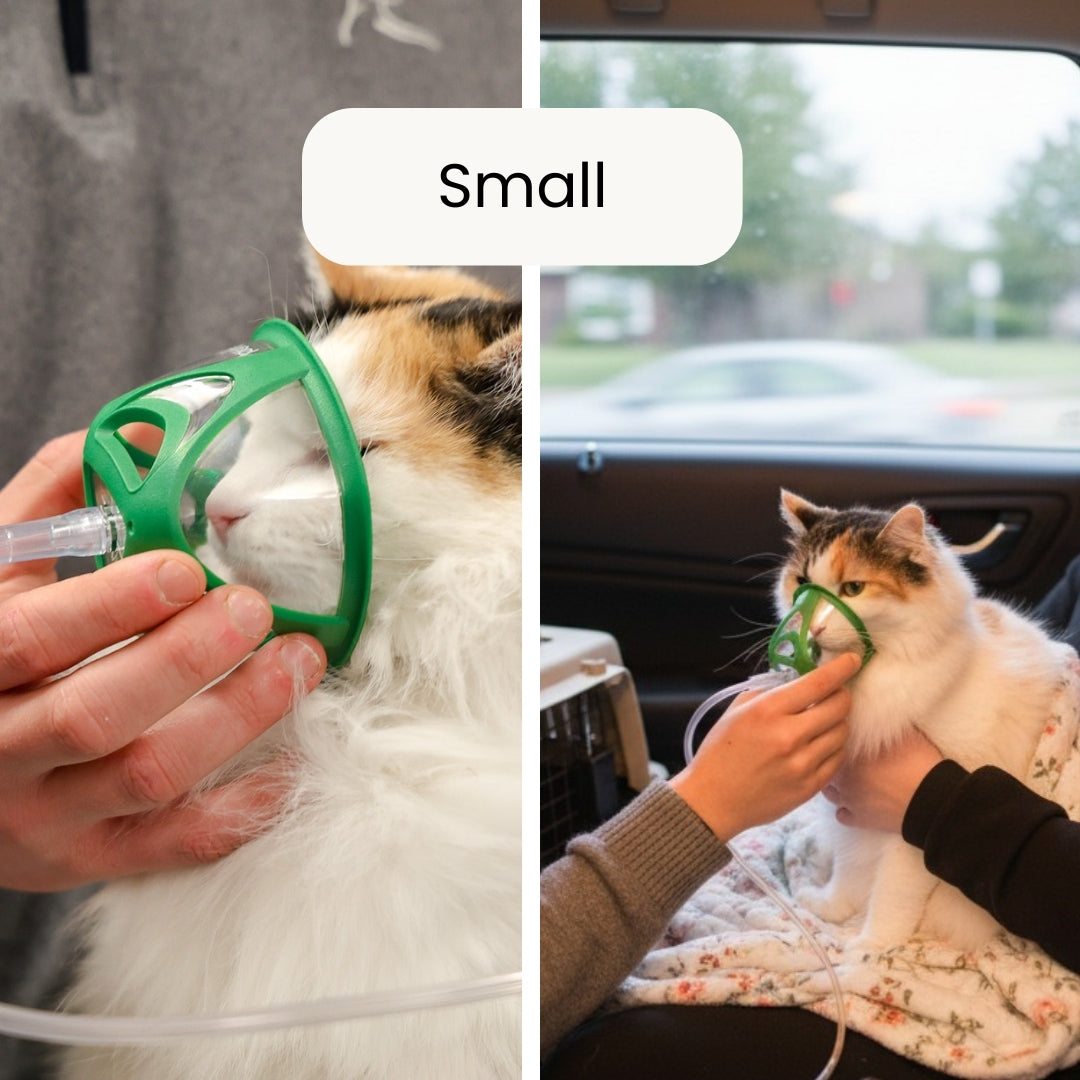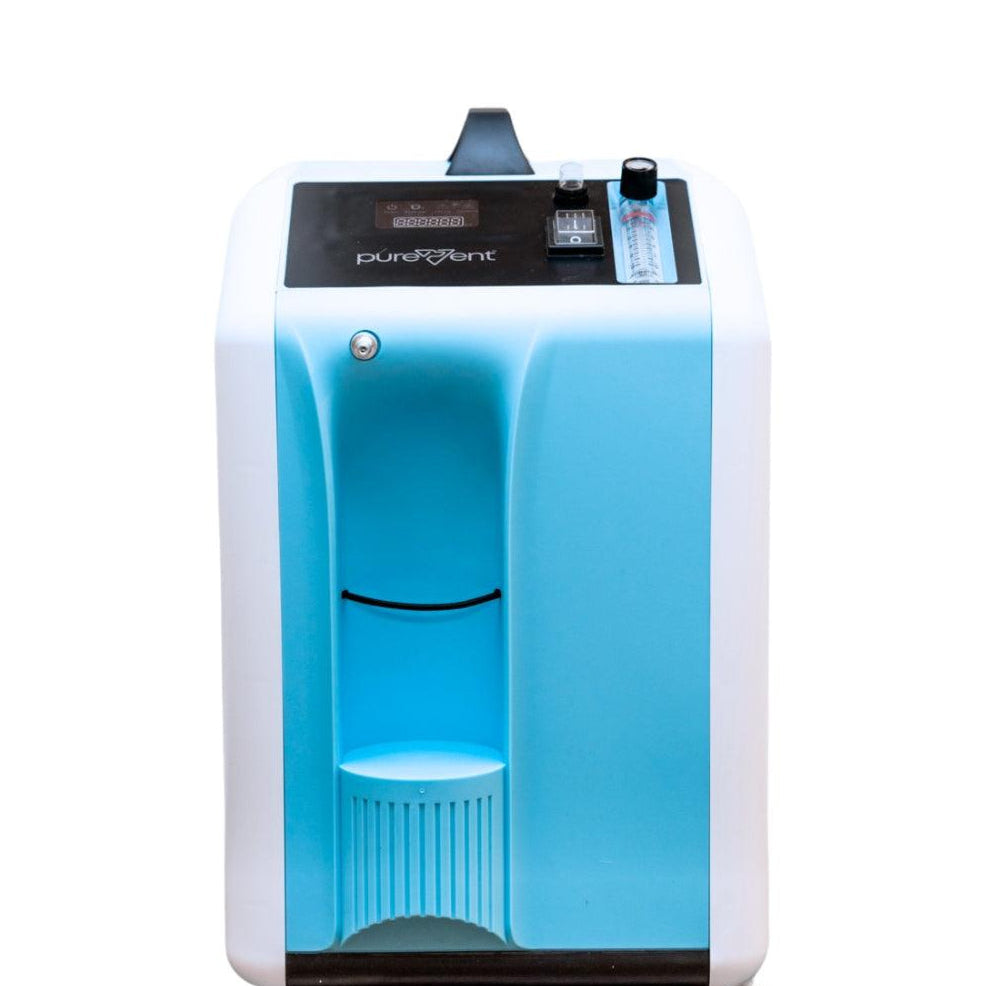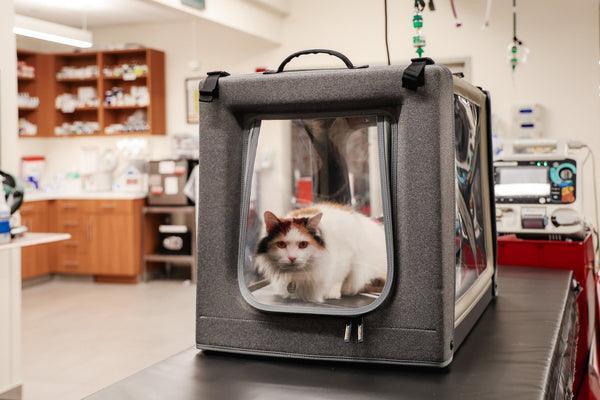Heart murmurs are a common condition affecting pets and can sound alarming to pet owners when their vet diagnoses their pet with one. Simply put, a heart murmur is an unusual sound heard during a pet’s heartbeat, often described as a whooshing or swishing noise. This sound occurs when blood flows turbulently through the heart or nearby vessels.
Understanding heart murmurs is essential for ensuring your pet’s health and well-being. While some murmurs are harmless and require no treatment, others may signal underlying conditions that need medical attention. Knowing what a heart murmur means for your pet can help you work closely with your veterinarian to provide the best care possible.
It’s also important to note that not all heart murmurs are life-threatening. Many pets with heart murmurs live long, healthy lives, especially with proper monitoring and management. In this article, we’ll walk you through everything you need to know about heart murmurs in pets, so you can feel informed and confident in caring for your furry friend.
Table of Contents
What Are Heart Murmurs in Pets?
A heart murmur is an abnormal sound heard during a pet’s heartbeat cycle, typically caused by turbulent blood flow within the heart or its surrounding vessels. Unlike the steady "lub-dub" rhythm of a normal heartbeat, a murmur may sound like a whooshing, swishing, or humming noise. These sounds vary in intensity, duration, and location, which can provide clues about the underlying cause.
How Are Heart Murmurs in Pets Detected?
Heart murmurs in pets are usually detected during a routine physical examination by your veterinarian. Using a stethoscope, your vet listens to your pet's heart, carefully noting any irregularities in its rhythm or sounds. If a murmur is identified, further diagnostic tests, such as chest X-rays, echocardiograms, or bloodwork, may be recommended to determine its cause and severity.
Common Symptoms That May Accompany Heart Murmurs in Pets
While some heart murmurs are "innocent" and cause no symptoms, others may indicate an underlying heart condition. Symptoms to watch for include:
- Lethargy: Reduced energy levels or reluctance to exercise.
- Coughing: Persistent or worsening coughing, especially at night or after physical activity.
- Difficulty Breathing: Labored breathing, rapid breathing, or shortness of breath.
- Poor Appetite or Weight Loss: A decline in eating habits or noticeable weight loss.
- Fainting or Collapse: Episodes of fainting, particularly during physical activity.
- Swollen Abdomen: Fluid buildup in the abdomen, known as ascites, in advanced cases.
Recognizing these symptoms early can significantly improve outcomes for pets with heart murmurs. Always consult your veterinarian if you notice any changes in your pet’s behavior or health.

Types of Heart Murmurs in Pets
Heart murmurs in pets are categorized based on their cause and significance. Understanding the type of murmur your pet has is essential for determining the appropriate care and monitoring.
Innocent (Physiological) Murmurs in Pets
Innocent murmurs are typically harmless and often do not require treatment. These murmurs are most common in young, growing pets and may resolve on their own as they mature.
-
Characteristics:
- Soft and low-grade (often Grade I or II on a scale of I to VI).
- Typically detected during puppy or kitten wellness exams.
- Not associated with symptoms of heart disease.
-
Common Causes:
- Rapid blood flow through the heart in healthy, growing animals.
Most innocent murmurs disappear by the time a pet reaches adulthood. However, regular veterinary check-ups are important to ensure no underlying issues develop.
Pathological Murmurs in Pets
Pathological murmurs are caused by underlying health conditions and may indicate more serious concerns. These murmurs vary in severity and may require additional diagnostic testing and treatment.
-
Characteristics:
- May be louder (Grade III or higher) and persistent.
- Often accompanied by other symptoms, such as lethargy, coughing, or difficulty breathing.
-
Common Causes:
- Congenital Defects: Abnormalities present at birth, such as patent ductus arteriosus (PDA) or ventricular septal defect (VSD).
- Valve Disorders: Malfunctioning heart valves that cause improper blood flow, such as mitral valve disease or tricuspid valve dysplasia.
- Heart Disease: Conditions like cardiomyopathy or congestive heart failure that affect the heart’s structure and function.
- Systemic Issues: Non-cardiac factors, such as severe anemia or hyperthyroidism, can lead to murmurs as the heart compensates for other body imbalances.
Pathological murmurs require prompt attention from your veterinarian, as they may indicate progressive or life-threatening conditions. Treatment often involves addressing the underlying cause, which may include medications, lifestyle adjustments, or surgery in severe cases. Regular monitoring and collaboration with your veterinarian are key to managing heart murmurs and ensuring the best possible quality of life for your pet.
Causes of Heart Murmurs in Pets
Heart murmurs in pets can arise from a variety of causes, which are generally classified into congenital, acquired, and systemic categories. Identifying the cause of a murmur is crucial for determining the best course of treatment for your pet.
Congenital Causes
Congenital heart murmurs are present from birth and result from structural abnormalities in the heart or major blood vessels. These conditions are often detected early in life during puppy or kitten wellness exams.
- Patent Ductus Arteriosus (PDA): A condition in which a blood vessel that should close shortly after birth remains open, leading to abnormal blood flow between the aorta and pulmonary artery.
- Septal Defects: Holes in the walls (septum) separating the heart's chambers, such as atrial septal defect (ASD) or ventricular septal defect (VSD).
- Pulmonic or Aortic Stenosis: Narrowing of the heart valves or blood vessels, causing restricted blood flow and increased heart strain.
Congenital conditions can range from mild to severe, and treatment may include monitoring, medications, or surgical intervention.
Acquired Causes
Acquired heart murmurs develop later in life due to diseases or aging-related changes in the heart. These are the most common causes in adult and senior pets.
- Mitral Valve Disease (MVD): Mitral valve disease is a degenerative condition affecting the mitral valve, leading to improper blood flow between the left atrium and ventricle. Common in older small-breed dogs.
- Dilated Cardiomyopathy (DCM): A disease that weakens and enlarges the heart, reducing its ability to pump blood effectively. More prevalent in large and giant dog breeds.
- Heartworm Disease: Caused by parasitic worms that infest the heart and lungs, resulting in severe inflammation and disrupted blood flow. This is preventable with regular heartworm prevention measures.
- Endocarditis: An infection of the heart’s inner lining or valves, often caused by bacteria entering the bloodstream.
Systemic Causes
In some cases, heart murmurs are not directly caused by heart problems but by systemic conditions that affect blood flow or heart function.
- Anemia: A reduced number of red blood cells leads to thinner blood, which can create turbulence and result in a murmur.
- Hyperthyroidism in Cats: Overproduction of thyroid hormone increases metabolic rate and cardiac output, leading to a functional murmur. This is common in older cats.
- High Blood Pressure (Hypertension): Increased pressure in the blood vessels can strain the heart and cause turbulent blood flow, resulting in a murmur.
Systemic causes are often treatable with medication or management of the underlying condition, emphasizing the importance of diagnosing the root cause of the murmur. Understanding the cause of your pet’s heart murmur is the first step toward effective management and maintaining their health and well-being.

Diagnosing Heart Murmurs in Pets
Diagnosing a heart murmur in your pet involves a thorough veterinary evaluation to determine its severity, cause, and potential impact on your pet's health. Early detection and an accurate diagnosis are crucial for effective management.
What to Expect During a Vet Visit
If your veterinarian detects a heart murmur during a routine exam, they will likely recommend additional steps to assess your pet’s overall heart health. Here’s what you can expect:
-
Physical Examination:
- Your veterinarian will listen to your pet’s heart with a stethoscope to evaluate the murmur’s intensity, location, and timing in the heartbeat cycle.
- They will also check for other signs of heart disease, such as difficulty breathing, pale gums, or an abnormal pulse.
-
Diagnostic Tests: To gain a clearer understanding of your pet’s condition, your vet may recommend one or more of the following tests:
- X-rays: Provide images of the heart and lungs to detect abnormalities such as an enlarged heart or fluid buildup.
- Echocardiogram (Ultrasound): Offers a detailed view of the heart’s structure and function, helping to identify congenital defects, valve disorders, or cardiomyopathy.
- Electrocardiogram (ECG): Measures electrical activity in the heart, detecting arrhythmias or other irregularities.
- Blood Tests: Assess overall health and identify systemic causes such as anemia or hyperthyroidism that could contribute to the murmur.
These diagnostic tools help your veterinarian determine whether the murmur is innocent or indicative of an underlying condition requiring treatment.
Importance of Early Detection and Monitoring
Early detection of a heart murmur can make a significant difference in your pet’s prognosis. Identifying a murmur early allows for:
Timely Intervention: Catching heart disease or systemic issues early can slow disease progression and improve quality of life.
Tailored Treatment Plans: Depending on the cause, treatment may involve medications, dietary changes, or, in severe cases, surgery.
Regular Monitoring: Even if a murmur is deemed innocent, periodic check-ups are essential to ensure it doesn’t evolve into a more serious condition.
By working closely with your veterinarian and scheduling regular health evaluations, you can ensure your pet receives the care they need to stay healthy and happy.
Treatment Options for Heart Murmurs
The treatment for heart murmurs in pets depends on the underlying cause and the severity of the condition. Some murmurs may not require any intervention, while others need a combination of medical treatment, surgery, and lifestyle changes to manage the condition effectively.
When No Treatment Is Needed
Not all heart murmurs require intervention.
- Innocent Murmurs: Innocent or physiological murmurs, especially in young pets, often resolve on their own as the pet matures. In these cases, treatment isn’t necessary, but regular check-ups are crucial to monitor any changes.
- Mild Pathological Murmurs: In some cases, a murmur may indicate a mild condition that doesn’t immediately affect your pet’s health. Your veterinarian may recommend periodic monitoring to ensure it doesn’t worsen over time.
Medications to Manage Underlying Conditions
When a heart murmur is caused by an underlying condition, medications are often the first line of treatment. These medications help to manage symptoms, improve heart function, and slow the progression of heart disease.
- Diuretics: Reduce fluid buildup in the lungs or abdomen, alleviating symptoms like coughing and difficulty breathing.
- ACE Inhibitors: Help relax blood vessels, lower blood pressure, and reduce the workload on the heart.
- Beta-Blockers: Regulate heart rate and improve overall cardiac efficiency.
- Pimobendan: A medication that strengthens heart contractions and supports better blood flow, commonly used in pets with congestive heart failure.
- Heartworm Treatment: If the murmur is related to heartworm disease, your veterinarian will prescribe a specific course of treatment to eliminate the parasites.
Surgical Interventions for Congenital Defects
In cases where a murmur is caused by a structural defect, surgery may be necessary to correct the issue.
- Patent Ductus Arteriosus (PDA): Surgical closure of the ductus arteriosus can resolve this congenital issue and prevent complications.
- Valve Repair or Replacement: Advanced techniques can address malfunctioning heart valves.
- Septal Defects: Surgery may be required to close holes in the heart's septum (walls separating the chambers).
While surgical options can be costly, they are sometimes the only way to resolve serious congenital conditions and significantly improve a pet's quality of life.
Lifestyle Adjustments and Supportive Care
In addition to medical or surgical treatments, lifestyle changes and supportive care can play a critical role in managing heart murmurs and associated conditions.
- Weight Management: Keeping your pet at a healthy weight reduces strain on the heart.
- Exercise Modifications: Avoiding excessive exertion while still promoting light, regular activity as advised by your veterinarian.
- Dietary Adjustments: Special diets formulated for heart health, often low in sodium, can help reduce fluid retention and support heart function.
- Environmental Comfort: Providing a stress-free and comfortable environment can reduce strain on your pet's cardiovascular system.
- Regular Check-Ups: Monitoring your pet’s condition with routine veterinary visits ensures timely adjustments to their treatment plan.
By combining appropriate medical care with supportive measures, you can help your pet lead a comfortable and fulfilling life, even with a heart murmur. Always work closely with your veterinarian to determine the best treatment approach for your pet’s specific needs.
How Supplemental Oxygen Therapy Treats Heart Murmurs in Pets
For pets with heart murmurs, especially those caused by underlying heart conditions, supplemental oxygen therapy can play a vital role in managing their symptoms and improving their quality of life. Oxygen therapy provides much-needed support for pets experiencing breathing difficulties or reduced oxygen levels, common complications associated with certain types of heart murmurs.
Benefits of Supplemental Oxygen Therapy
- Eases Breathing Difficulties: Pets with advanced heart conditions may struggle to breathe due to fluid buildup in the lungs (pulmonary edema) or poor blood circulation. Oxygen therapy helps alleviate this symptom, making breathing easier and reducing distress.
- Improves Oxygen Delivery: When a heart murmur impacts the heart's efficiency, the body may struggle to distribute oxygen effectively. Supplemental oxygen ensures that your pet's tissues and organs receive the oxygen they need, supporting overall health and comfort.
- Reduce Stress and Fatigue: Oxygen therapy can reduce the workload on your pet's heart by improving oxygenation, helping them feel less tired and more relaxed.
- Emergency Support During Crises: If your pet experiences an acute episode, such as difficulty breathing or collapse, having access to oxygen therapy at home and a portable oxygen source, like the Oxygen Kit for Dogs, provides immediate relief while you seek veterinary care.

Oxygen Therapy Options
Portable Oxygen Kits: Products like the Pawprint Oxygen Portable Kits are specifically designed for home or on-the-go use, offering an easy way to deliver oxygen when and where your pet needs it. These kits are convenient for emergencies or intermittent use.
Oxygen Concentrators: For pets requiring ongoing oxygen therapy, an oxygen concentrator provides a continuous supply, making it ideal for chronic conditions. These devices can be used with an oxygen chamber or a pet oxygen mask to suit your pet's needs.
When to Consider Oxygen Therapy
Your veterinarian may recommend oxygen therapy if your pet has a heart murmur accompanied by symptoms such as:
- Difficulty breathing or rapid breathing.
- Fatigue or weakness after minimal activity.
- Episodes of fainting or cyanosis (bluish gums or tongue).
By integrating oxygen therapy into your pet’s care plan, you can provide them with comfort and support, especially during times of respiratory distress. Always work closely with your veterinarian to determine the most appropriate setup and frequency for your pet’s specific condition. Supplemental oxygen therapy is a powerful tool to help pets with heart murmurs lead a more comfortable life, ensuring they can breathe easier and enjoy more of the moments that matter.
Living with a Pet with a Heart Murmur
Caring for a pet with a heart murmur requires a proactive approach to ensure their comfort, health, and well-being. While a heart murmur might not always indicate a severe problem, it’s essential to remain vigilant and provide appropriate care.
How to Care for Your Pet
Providing regular veterinary care and closely monitoring your pet can make a significant difference in managing their condition.
- Regular Check-Ups: Routine veterinary visits are essential for monitoring your pet’s heart health. These check-ups help track changes in the murmur, assess overall health, and adjust treatment plans if necessary.
-
Monitoring Symptoms: Keep a close eye on your pet for signs that may indicate their heart condition is worsening. Contact your veterinarian if you notice:
- Persistent coughing or difficulty breathing.
- Increased lethargy or reluctance to exercise.
- Fainting or collapsing episodes.
- Loss of appetite or noticeable weight changes.
Early recognition of these symptoms allows for timely intervention and better outcomes.
Are heart murmurs more common in certain breeds or species?
Yes, heart murmurs are more common in certain breeds and species due to genetic predispositions and specific anatomical traits. Some common dog breeds predisposed to heart murmurs are Cavalier King Charles Spaniels, Pomeranians, Chihuahuas, Boxers, Doberman Pinschers, German Shepherds, and Golden Retrievers.
Heart murmurs in cats are less breed-specific but can be linked to certain conditions like hypertrophic cardiomyopathy (HCM).
What do the grades of heart murmurs mean?
Heart murmurs are graded based on their loudness, which provides a general indication of their severity. The grading system ranges from Grade I to Grade VI , with higher grades indicating louder and potentially more concerning murmurs.
Can a heart murmur go away on its own, or is it permanent?
Whether a heart murmur goes away on its own or is permanent depends on the underlying cause. Innocent heart murmurs, like those seen in puppies and kittens due to turbulence in their blood flow, may resolve on their own. However, heart murmurs caused by congenital defects, acquired heart disease, and age-related changes to the heart are permanent.
Importance of a Balanced Diet and Appropriate Exercise
Maintaining a healthy lifestyle can reduce strain on your pet’s heart and improve their quality of life.
- Balanced Diet: Feeding your pet a heart-healthy diet, often low in sodium, can help manage fluid retention and support cardiovascular health. Your veterinarian may recommend specialized diets or supplements to address your pet's specific needs.
- Appropriate Exercise: While pets with heart murmurs may need to avoid strenuous activities, light to moderate exercise can promote overall health. Follow your veterinarian’s guidance to create a safe activity plan that matches your pet’s capabilities and condition.
Managing Stress for Your Pet
Stress can negatively impact your pet’s heart health, so it’s important to create a calm and supportive environment.
- Minimize Environmental Stressors: Avoid loud noises, sudden changes, or situations that may cause anxiety.
- Provide Comfort: Ensure your pet has a comfortable resting area with soft bedding and a quiet atmosphere.
- Positive Reinforcement: Use positive training techniques and reward-based systems to build your pet’s confidence and reduce stress during routine activities like grooming or vet visits.
Living with a pet with a heart murmur may require extra attention and adjustments, but with proper care and regular monitoring, many pets with heart murmurs can lead happy and fulfilling lives. Partnering with your veterinarian will ensure you’re taking the right steps to support your pet’s health every step of the way.
Pawprint Oxygen canisters provide a convenient and portable solution for pets with heart murmurs who may experience difficulty breathing due to underlying cardiac conditions. Pets with murmurs often have compromised heart function, which can lead to reduced oxygen delivery to tissues. Supplemental oxygen helps to alleviate the strain on their cardiovascular system by increasing the oxygen levels in their blood, making it easier for their bodies to function efficiently.
Pawprint Oxygen canisters are designed to be easy to use, allowing pet parents to administer oxygen therapy at home or during travel, providing immediate relief during episodes of respiratory distress.
Prevention and Risk Reduction
While not all heart murmurs can be prevented, certain steps can reduce the risk of acquired murmurs and help minimize the impact of congenital heart conditions. By taking proactive measures, you can support your pet’s overall heart health.
Preventive Measures for Acquired Heart Murmurs
Acquired heart murmurs often develop due to conditions that affect the heart over time. Preventing or managing these conditions is key to reducing the risk of heart murmurs.
- Heartworm Prevention: Heartworm disease is a common cause of acquired heart murmurs in pets. Using veterinarian-recommended heartworm prevention medication year-round can protect your pet from this life-threatening condition.
- Regular Veterinary Visits: Routine check-ups allow your veterinarian to identify early signs of heart issues or systemic conditions that could contribute to a murmur. Early detection enables timely treatment, potentially preventing further complications.
- Healthy Lifestyle Choices: Maintaining your pet at a healthy weight, providing a balanced diet, and ensuring they get appropriate exercise all contribute to reducing the risk of heart disease and related murmurs.
Breeding Considerations to Avoid Congenital Heart Issues
Congenital heart murmurs are often the result of genetic factors. Responsible breeding practices are crucial for reducing the prevalence of these conditions.
- Screenings for Breeding Animals: Breeding dogs and cats should undergo thorough health evaluations, including screenings for genetic or structural heart defects. Breeders should avoid pairing animals with known congenital heart issues.
- Selecting Reputable Breeders: If you’re acquiring a pet from a breeder, choose one who prioritizes health screenings and responsible breeding practices. Ask for documentation confirming that both parents have been cleared of congenital heart defects.
- Promoting Genetic Diversity: Overbreeding within limited gene pools can increase the risk of hereditary heart defects. Responsible breeders work to maintain genetic diversity within their breeding programs.
By focusing on prevention and risk reduction, you can help protect your pet from many of the conditions that lead to heart murmurs. These proactive measures, combined with routine veterinary care, set the foundation for a long and healthy life for your furry companion.
When to Seek Veterinary Care
Recognizing when to seek veterinary attention for a pet with a heart murmur is critical for ensuring their health and safety. Some signs may indicate a worsening heart condition or a medical emergency that requires immediate care.
Signs That Require Immediate Attention
If you observe any of the following symptoms in your pet, contact your veterinarian or an emergency clinic right away:
Difficulty Breathing: Labored breathing, open-mouth breathing, or rapid panting that does not resolve with rest can indicate fluid buildup in the lungs (pulmonary edema) or other serious heart complications.
Collapse or Fainting (Syncope): Sudden loss of consciousness, even if brief, is a serious symptom that suggests reduced blood flow or oxygen delivery to the brain.
Bluish Gums or Tongue (Cyanosis): A bluish tint to your pet's gums or tongue is a sign of oxygen deprivation and requires urgent veterinary attention.
Severe Lethargy or Weakness: A noticeable decline in energy levels, difficulty standing, or reluctance to move may indicate the heart is struggling to pump blood effectively.
Persistent Coughing or Gagging: Frequent coughing, especially at night or after exercise, could signal fluid buildup or pressure changes in the heart and lungs.
Understanding the Urgency of Worsening Symptoms
Heart murmurs, particularly those caused by underlying heart disease, can progress over time. It’s essential to understand the urgency of worsening symptoms:
- Sudden Changes: A rapid onset of symptoms such as breathing difficulties, collapse, or cyanosis is a medical emergency and getting your pet to the hospital should not be delayed.
- Gradual Worsening: If your pet's symptoms slowly worsen, such as an increasing cough or reduced tolerance for exercise, schedule a veterinary appointment as soon as possible. These changes could indicate the progression of heart disease and may require adjustments to their treatment plan.
Knowing when to seek veterinary care can save your pet’s life. If you’re ever unsure about the severity of your pet’s symptoms, it’s better to err on the side of caution and consult your veterinarian. Prompt action ensures your pet receives the necessary care to manage their condition effectively.

Providing Your Pet with the Happiest, Most Fulfilling Life
Heart murmurs in pets can range from harmless to indicative of underlying health issues, making it essential for pet owners to understand their significance. Whether the murmur is innocent or pathological, early detection through routine veterinary care is key to ensuring your pet's well-being. By recognizing symptoms, seeking timely diagnosis, and following appropriate treatment or monitoring plans, you can help your pet maintain a good quality of life.
If you have any concerns about your pet’s heart health or notice symptoms like coughing, lethargy, or difficulty breathing, don’t hesitate to consult your veterinarian. They are your best resource for assessing your pet’s condition and providing the care they need. With proper care, pets with heart murmurs can often lead long, happy, and fulfilling lives. By staying informed and proactive, you’re taking important steps to support your furry companion’s heart health and overall happiness.























